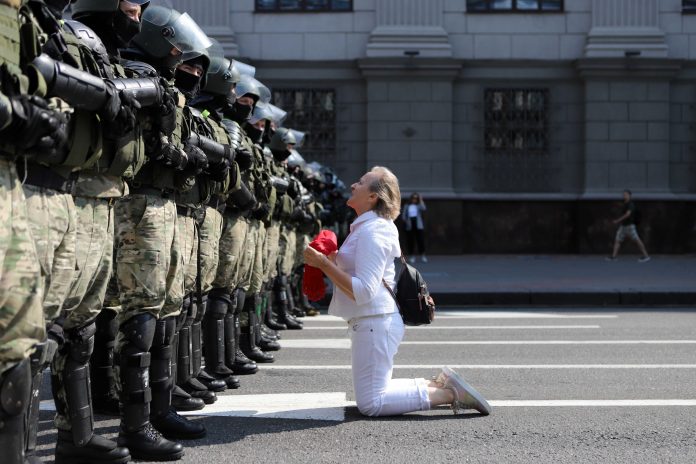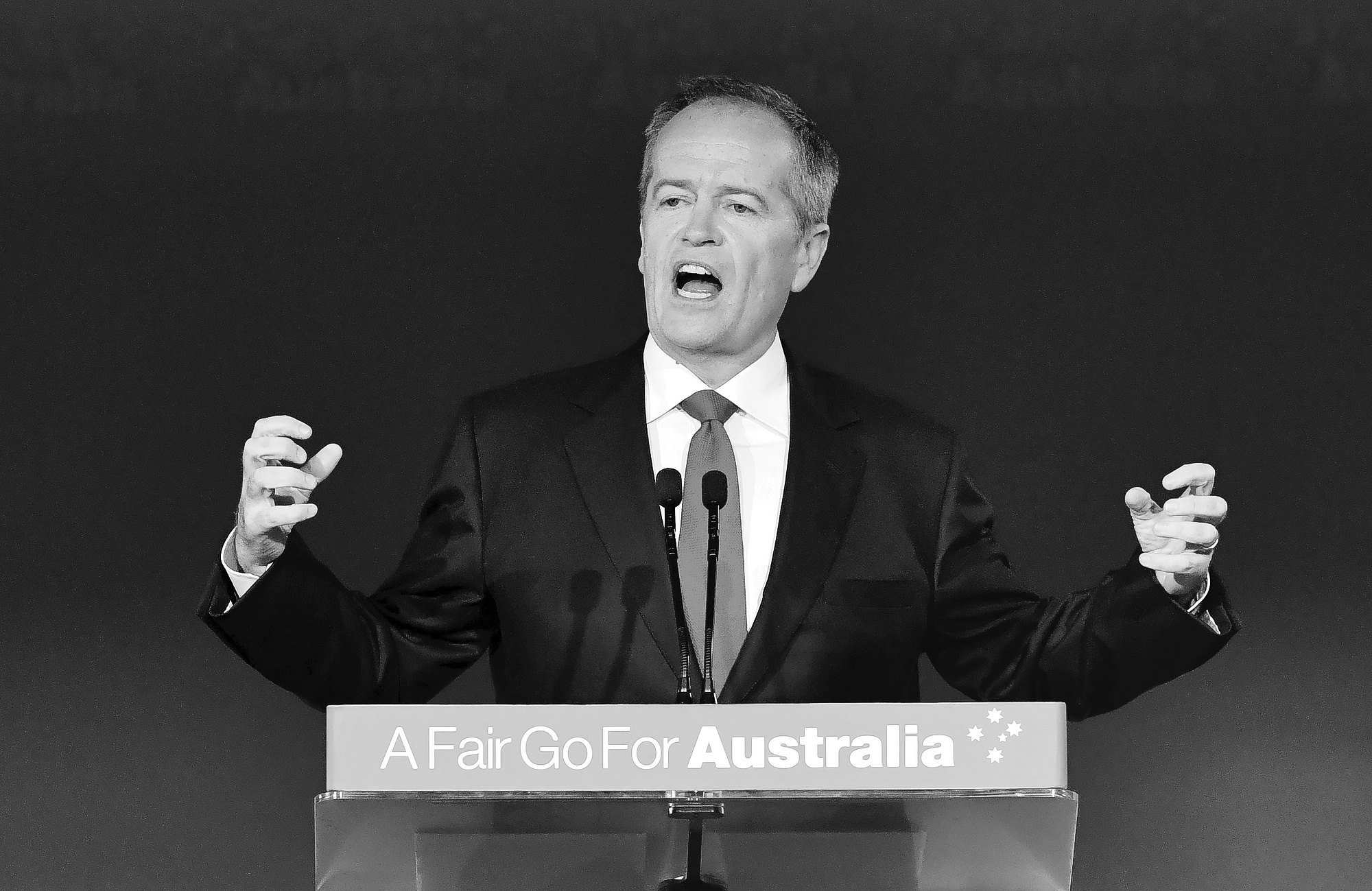Tens of thousands of demonstrators rallied Sunday in the Belarusian capital of Minsk to begin the fourth week of daily protests demanding that the country’s authoritarian president resign.
The protests began after an Aug. 9 presidential election that protesters say was rigged but that election officials say gave President Alexander Lukashenko a sixth term in office.
Protesters initially tried to gather at Independence Square in Minsk, but barriers and riot police blocked it off. They then streamed down one of the capital’s main avenues, past hulking olive-green prisoner transport vehicles. Police detained some marchers and forced them into the transports.
Police said 125 people were arrested, but Ales Bilyatsky of the Viasna human rights organization said more than 200 were detained.
The marchers, chanting “Freedom!” and “Resign!” eventually reached the outskirts of the presidential palace, which was blocked off by shield-bearing riot police. There were no official figures on the crowd size, but some opposition sources claimed it exceeded 100,000.
The widespread protests arose after the election that officials say gave President Alexander Lukashenko a landslide 80% win over his main challenger, Sviatlana Tsikhanouskaya, a former teacher and the wife of a popular jailed blogger.
Lukashenko, in office since 1994, has been defiant but beleaguered, unable to put down largest, most sustained wave of protests yet in this Eastern European nation of 9.5 million people. He has refused to rerun the election, which both the European Union and the United States have said was not free or fair, and also refused offers to help mediate the situation from Baltic nations.
Lukashenko says he has reached an agreement with Russian President Vladimir Putin that Russia will send in security help if asked. But Russia has appeared hesitant to get involved deeply in the Belarus unrest.
Putin and Lukashenko talked by phone on Sunday, but a Kremlin statement gave few details of the conversation, other than noting that Putin congratulated the Belarusian leader on his 66th birthday.
Tsikhanouskaya, who fled to Lithuania after the election because of concerns about her security, gave a withering acknowledgement of the birthday.
“I wish him to overcome his fears, look truth in the eye, listen to the voice of the people and go away,” she told The Associated Press by telephone from the Lithuanian capital of Vilnius.
Lukashenko has consistently blamed Western countries for encouraging the protests and contends that NATO is repositioning forces along Belarus’ western border with the aim of intervening in the unrest, a claim the alliance strongly denies.
On Sunday, the Belarusian Defense Ministry said it was conducting military exercises in the Grodno region, near the borders of Poland and Lithuania, simulating defending against an invasion.
Belarus on Saturday cracked down hard on foreign news media that have been covering the protests, deporting at least four Russian journalists, including two from The Associated Press. The government also revoked the accreditation of many Belarusian journalists working for foreign new agencies, including journalists working for AP.




















